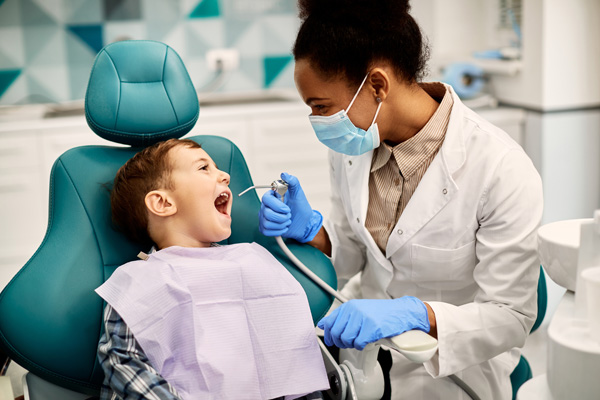 Dental anesthesia and dental sedation are both ways to minimize the pain and anxiety patients experience during a dental procedure, and they may be available for kids' dental procedures. However, it is important for parents to have an understanding of what they both are before deciding on anesthesia or sedation in pediatric dentistry.
Dental anesthesia and dental sedation are both ways to minimize the pain and anxiety patients experience during a dental procedure, and they may be available for kids' dental procedures. However, it is important for parents to have an understanding of what they both are before deciding on anesthesia or sedation in pediatric dentistry.
Dental anesthesia vs. dental sedation: Which is right for my child?
Your child’s pediatric dentist may recommend dental anesthesia or dental sedation depending on the level of anxiety your child has and the type of kid's dental procedure that is being performed. The following is a general overview of the two options as they pertain specifically to pediatric dentistry and kids dental procedures.
What is dental anesthesia for kids?
The term “anesthesia” usually refers to general anesthesia. With this form of anesthesia, the patient is unconscious and unable to respond to the dental staff. Of course, as a result, this ensures the patient does not feel any pain during the procedure and can help if they have severe dental anxiety or phobia. However, with that said, pediatric dentists typically do not recommend dental anesthesia for children unless it is absolutely necessary. For some more invasive oral surgery procedures, however, general anesthesia may be recommended.
What is dental sedation for kids?
Dental sedation is much more commonly used for kids than general anesthesia. With sedation, the child is awake and can usually respond, although they are not as fully awake as they usually are and do not feel as much stimulation. There are three main types of dental sedation, which are:
- Nitrous oxide
- Oral sedation
- IV sedation
Nitrous oxide, also called laughing gas, is perhaps the main type of sedation for kids' dental procedures, and it can be used safely for more common procedures such as a dental filling or tooth extraction. Oral sedation and IV sedation is stronger and not used as often for kids' dental procedures, but it is sometimes recommended for more invasive procedures.
When is dental sedation recommended for kids' dental procedures?
As mentioned, dental sedation is more regularly used for kids' dental procedures than general anesthesia. This is because sedation is safer overall with fewer risks but still provides the level of pain relief necessary to keep children calm and comfortable.
If your child is scheduled for an oral surgery procedure, such as facial reconstruction, then the pediatric dentist or oral surgeon may recommend general anesthesia. Ultimately, the best way to determine which is the best solution for your child is to discuss all viable options with your child’s pediatric dentist.
Schedule a pediatric dentistry visit for more information
Here at our dental practice, we use dental sedation to help children who may feel nervous and/or have a more invasive procedure scheduled relax and feel comfortable and confident during their visit with us. To learn more about pediatric dentistry and dental sedation options for your child, schedule a visit by giving us a call or sending us a message today.
Request an appointment or call Tiny Teeth Pediatric Dentistry at 516-243-1364 for an appointment in our Mineola office.
Related Posts
Once teething starts, you should pay close attention to your child's teeth to avoid tooth decay, cavities, and other oral health problems. A dentist specializing in pediatric dentistry might advise against pacifiers and other items that might interfere with the healthy development of their oral tissues. Sucking on a pacifier is common among infants and…
Pediatric dentistry treatments can stop and prevent tooth decay. This dental problem can influence a child’s emotional, physical, and mental well-being. Poor oral health results in more than tooth decay. This situation could lead to harmful diseases and other conditions. If you want to know tooth decay’s effects on children, here are the details from…
When does my child need pediatric dentistry? This is a question that many parents often ask. The answer may vary depending on the opinion of the pediatric dentist. However, most pediatric dentists believe that a child should go to pediatric dentistry by their first birthday.A child needs to get used to the dentist at an…
